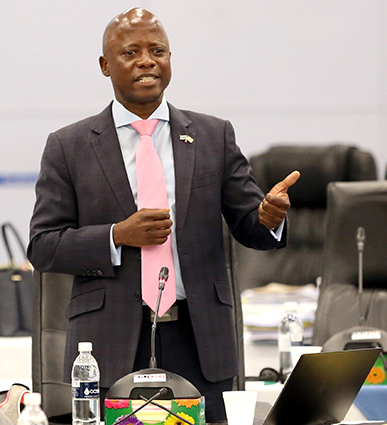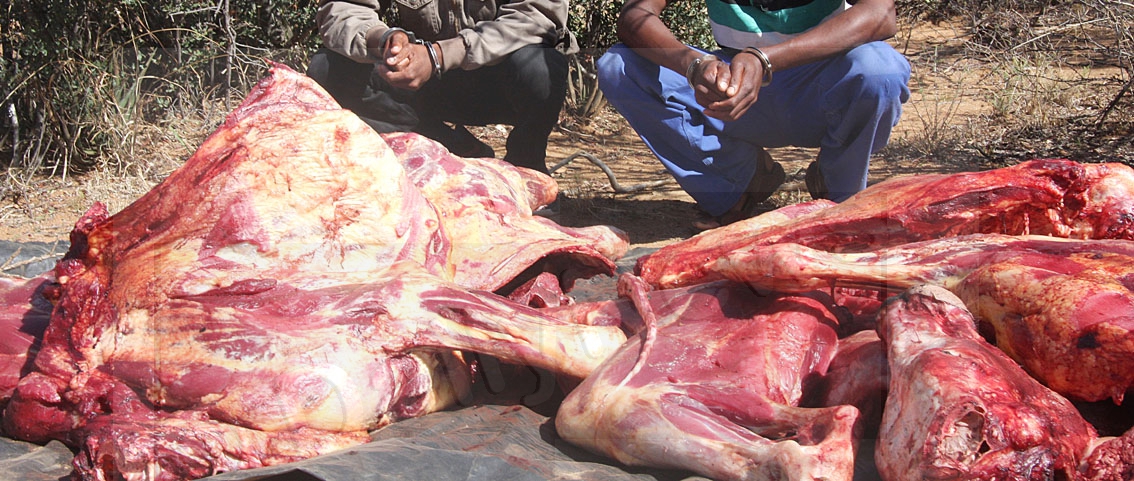Kgafela presents transitional plan chapter
11 Dec 2022
Chapter Six of the Transitional National Development Plan (NDP) which encompasses the Sustainable Economic Development pillar is the driver of the country’s objective to reach high income status and prosperity for all by the year 2036.
This was said by the Minister of Trade and Industry, Mr Mmusi Kgafela when presenting Chapter Six to legislators at the National Assembly on Thursday.
Mr Kgafela said the chapter built on the economy and employment thematic working group from NDP 11 which had focused on areas such as the ease of doing business, infrastructure development, productivity and human resource development, and economic sectors such as agriculture, mining, manufacturing, as well as transport and logistics.
“Key performance indicators for this pillar include gross domestic product (GDP) growth, per capita income, exports, sectoral output, domestic and foreign investment, industrial development, job creation, poverty and income inequality,” Mr Kgafela said.
He said his ministry would provide leadership to drive the sustainable economic development pillar, working closely with the Ministry of Entrepreneurship, which would provide policy direction to business development locally, and twelve other ministries including those of finance, agriculture and health among others.
Mr Kgafela said over NDP 11 the export sector remained undiversified with diamonds continuing to dominate, while the share of manufacturing to GDP declined.
He said owing to the adverse impact of the COVID-19 pandemic, sectors such as tourism also had a sluggish performance.
He also noted that under the transitional plan, focus would be on sector-based areas with priority sectors that could unlock export-led growth and job creation.
He named minerals, agriculture, tourism, manufacturing, information and communication technology, financial services and the creative industry as the key sectors.
Mr Kgafela said government would capitalise on opportunities including the existence of strategic infrastructure such as the Kazungula Bridge which positioned Botswana as a gateway to Southern and Central Africa as the Africa Continental Free Trade Area took shape.
The existence of significant minerals such as diamonds, base metals and other minerals and the potential of value chain development as well as the special economic zones development also provided an opportunity for the country, Mr Kgafela said.
Gaborone North Member of Parliament, Mr Mpho Balopi said when Vision 2036 was crafted, ordinary citizens were asked about the country they envisioned to have by the time the country commemorated 70 years of independence.
He said most wished for an economically diversified country that would generate meaningful jobs with prosperity for all.
Mr Balopi thus welcomed the sustainable development segment of the transitional plan, saying it would lead the country towards a knowledge based and vibrant economy.
Molepolole North legislator, Mr Oabile Ragoeng said the country needed to invest more in manufacturing since Botswana currently relied heavily on imports for manufactured goods, which lessened job prospects domestically and led to a large import bill.
Sefhare-Ramokgonami MP, Dr Kesitegile Gobotswang said the road infrastructure in his constituency was poor and needed to be upgraded to improve economic activity. ENDS
Source : BOPA
Author : Pako Lebanna
Location : GABORONE
Event : Parliament
Date : 11 Dec 2022




